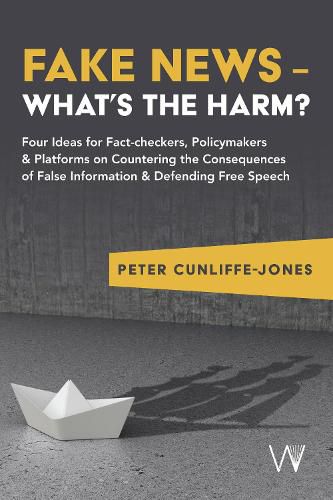Readings Newsletter
Become a Readings Member to make your shopping experience even easier.
Sign in or sign up for free!
You’re not far away from qualifying for FREE standard shipping within Australia
You’ve qualified for FREE standard shipping within Australia
The cart is loading…






Peter Cunliffe-Jones, founder of Africa's first fact-checking organisation, argues false assumptions since 2016 have both undermined efforts to counter the consequences of false information and curbed freedom of speech. He proposes four ideas for fact-checkers, policymakers and platforms: First, "information disorder" is broader than "false news". Second, consequences of false information in offline settings can be as great or greater than if spread online. Third, consequences also emerge via effects on the understanding of policymakers; not only the public. Fourth, identifying factors that shape the potential of specific false claims to cause specific harms makes it possible to focus attention on potentially harmful false information and defend freedom of speech. And he describes a 2024 trial by three fact-checking organisations proving the practicality and utility of the model proposed.
$9.00 standard shipping within Australia
FREE standard shipping within Australia for orders over $100.00
Express & International shipping calculated at checkout
Peter Cunliffe-Jones, founder of Africa's first fact-checking organisation, argues false assumptions since 2016 have both undermined efforts to counter the consequences of false information and curbed freedom of speech. He proposes four ideas for fact-checkers, policymakers and platforms: First, "information disorder" is broader than "false news". Second, consequences of false information in offline settings can be as great or greater than if spread online. Third, consequences also emerge via effects on the understanding of policymakers; not only the public. Fourth, identifying factors that shape the potential of specific false claims to cause specific harms makes it possible to focus attention on potentially harmful false information and defend freedom of speech. And he describes a 2024 trial by three fact-checking organisations proving the practicality and utility of the model proposed.